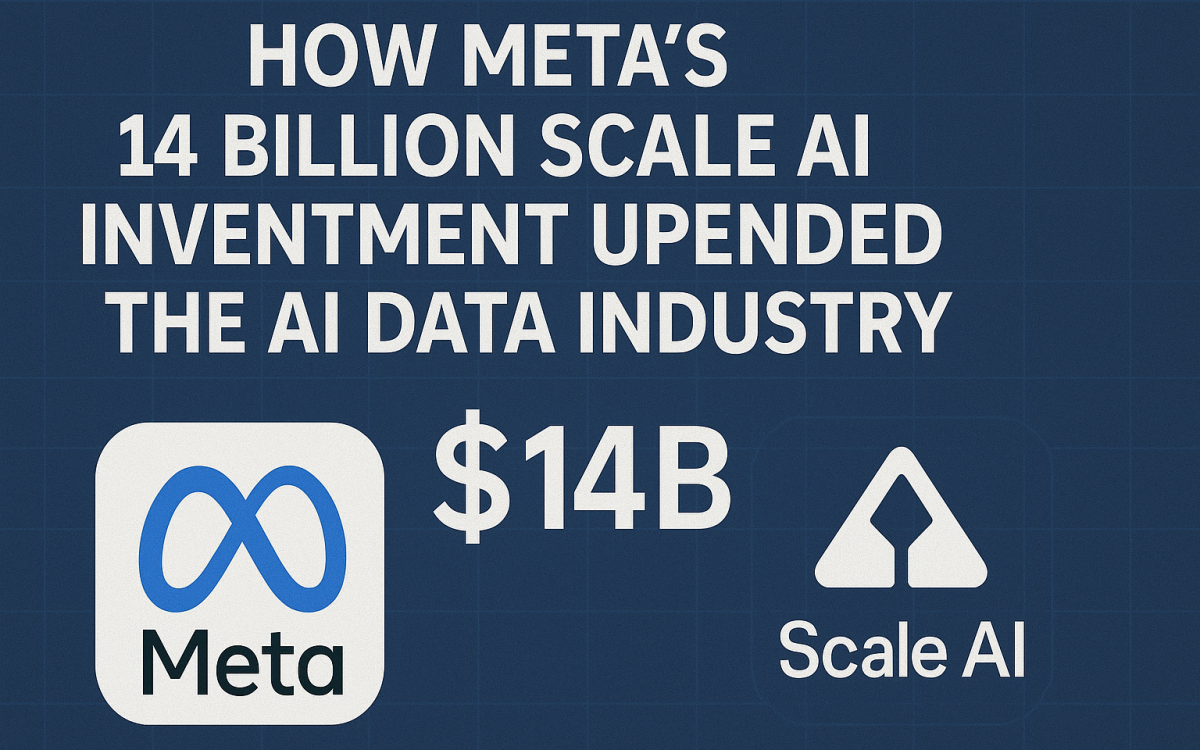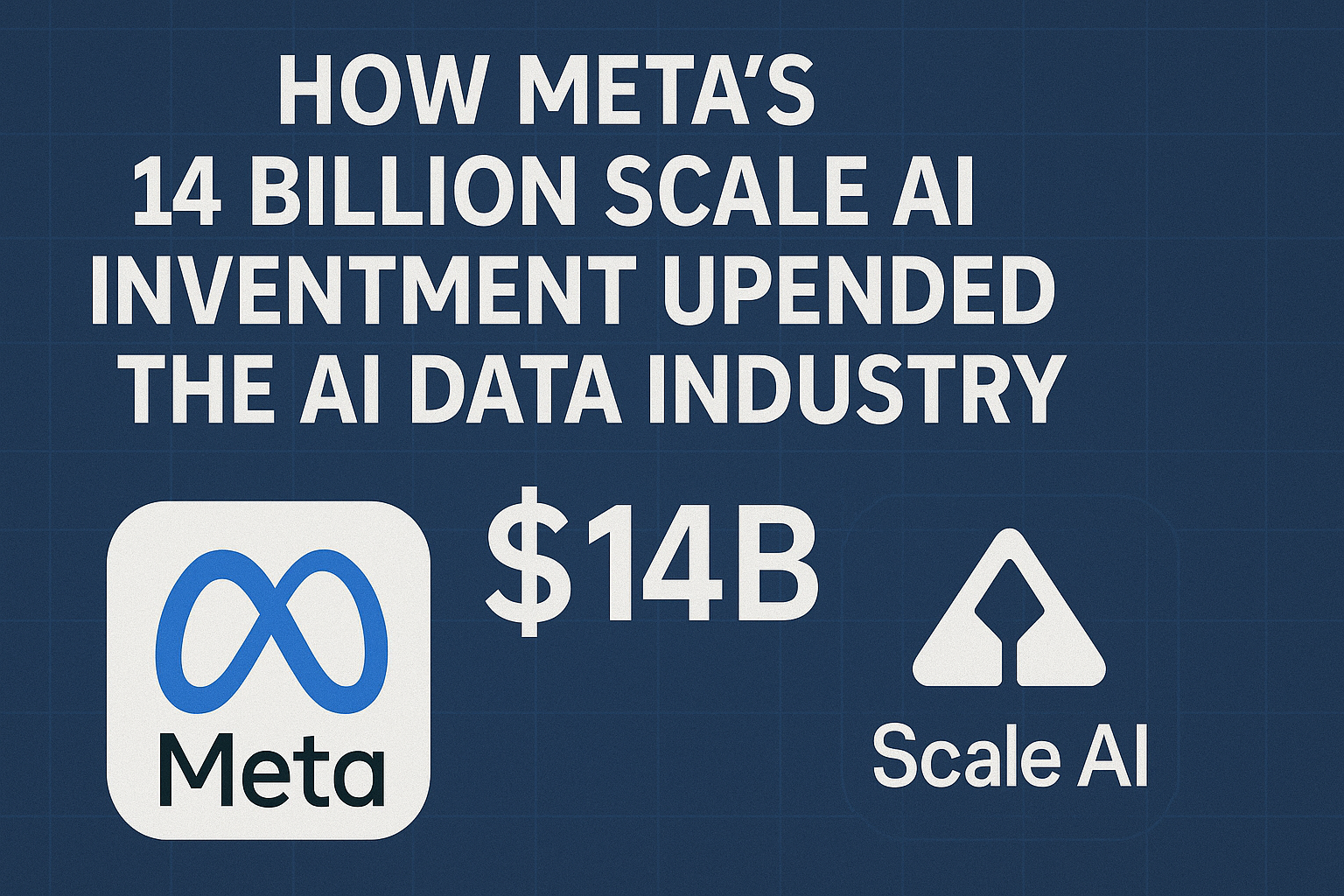How Meta’s $14 Billion Scale AI Investment
In a daring move that’s rattling the foundations of the artificial intelligence (AI) industry, Meta has put down a staggering $14 billion in Scale AI, a data infrastructure company based in San Francisco, founded by Alexandr Wang. While the media, writ large, continues to obsess over model performance and generative AI magic tricks, this investment has pointed the spotlight on an altogether different universe of power—namely, the AI data industry, more specifically, data labeling.

Data Is the New Oil and Labeling Is the Refiner
AI systems are only as good as the data used in their training. To build reasoning models and eventually superintelligence, companies need lots of clean, labeled, and quality data—Scale AI to the rescue! Scale AI has built its reputation around delivering great labeled, human-annotated data across sectors—with everything from autonomous vehicles and defense to now generative AI.
By investing in Scale AI, Meta is fortifying its data supply chain. While Meta’s competitors in AI, such as OpenAI and Google, are focused on building better models, Meta is focused on building a more plentiful supply of quality data, the most important ingredient for building reliable AI systems.
What This Means for AI Development
This deal is not just about financing either; it is about momentum. With Scale AI’s enhanced capabilities, Meta can accelerate the development of its large language models (LLMs) using a never-ending stream of labeled datasets intended for smarter, context-aware systems. These are critical for everything from recommendation engines to Meta’s AI assistant and future metaverse applications.
In addition, this allows Meta to create AI models that look beyond pattern recognition and into real-world reasoning, therefore reducing the gap between artificial and human intelligence.
The Talent and Infrastructure Advantage
Another important meaning of this investment is talent acquisition in AI. With more capital, Scale AI will be able to attract the best researchers and engineers, and data scientists, further tipping the balance towards Meta. It also gives Meta indirect access to a high-performance infrastructure for training and testing frontier models.
Other players in the AI race may now have to do all of this with in-house solutions or smaller vendors, which may impede or greatly increase their costs. The onus now is on OpenAI, Google DeepMind, and Anthropic to reconsider their AI investment plans.
Disruption All Over the Industry
This move from Meta is an indication of a larger shift in how companies build AI. The requirement for AI is no longer just about chips or number of parameters. Now it includes source data quality, annotation speed, and scalability of infrastructure.
The AI data industry is going to go through a lot of consolidation, upsized valuations, and competitive intensity with Scale AI at the center. Smaller annotation firms will have a hard time keeping up, and tech giants will be racing when it comes to building their long-term data pipelines.
Conclusion:
Meta’s $14 billion investment into Scale AI signifies a shift in the AI race, with data labeling being the focal point in the redefinition of intelligent systems. As the industry approaches superintelligence, it is becoming increasingly clear: whoever owns the best data, wins.



